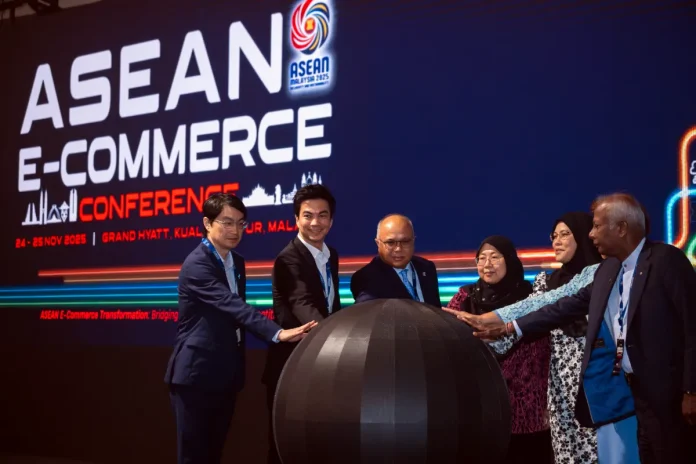KUALA LUMPUR: Malaysia is positioning itself at the forefront of Southeast Asia’s fast-expanding digital economy, with the government emphasising the need for stronger collaboration and more transparent governance as e-commerce accelerates across borders.
Domestic Trade and Costs of Living Deputy Minister Datuk Dr Fuziah Salleh said the sector’s rapid growth requires regulators and industry players to work more closely in shaping the future of the regional digital marketplace.
She noted that e-commerce has already become one of the region’s most dynamic engines of growth, with Malaysia and its Asean partners collectively expected to reach RM1.65 trillion in e-commerce value by end-2025.
“The government and ministries recognise that e-commerce is expanding at great speed. It is imperative for us to create a platform where regulators and industry players can sit together and develop a common understanding of the guidelines that will support this growth,” she told reporters at the Asean E-Commerce Conference 2025 today.
Fuziah outlined three strategic priorities that will guide Malaysia’s forward agenda for the sector – trust, interoperability and sustainability.
She stressed that strengthening confidence in digital transactions remains the foundation of a healthy e-commerce ecosystem. “The first thing we must build is trust. When confidence is low, it affects both consumers and businesses. Without trust, the industry cannot grow.”
Fuziah then highlighted the need for seamless interoperability as digital commerce becomes increasingly borderless.
“Interoperability is crucial because e-commerce crosses borders; it is not confined to one country. We must find solutions that make platforms easier to use across different markets and technologies,” she said, adding that consumers and merchants should experience frictionless interactions regardless of the platform they choose.
Looking ahead, sustainability and the adoption of greener technologies will also shape the sector’s future competitiveness.
Fuziah underscored that the sector’s long-term growth hinges on responsible practices.
“If industry players do not adapt to sustainability challenges, it will have negative effects over time. We must encourage greener, more sustainable approaches across the ecosystem.”She stressed that the e-commerce sector’s progress will depend on cooperation across Asean, with regulators, businesses, sellers, users and affiliates all playing a role in strengthening the region’s digital economy.
“We hope that with collaboration and shared best practices, we can reach a common framework that benefits the entire ecosystem. Everyone must gain from the industry’s development,” she said.
Fuziah expressed confidence that the conference would pave the way for stronger governance structures within Asean’s digital landscape. “I hope we can form meaningful collaboration among all stakeholders in Malaysia and the region.
Together, we can build true Asean governance for the future of e-commerce,” she said.
Malaysian International Chamber of Commerce and Industry president Christina Tee said Asean is one of the most dynamic digital marketplaces in the world.
“If we harmonise standards, strengthen compliance pathways, and enable seamless cross-border commerce, this region can become a global powerhouse. The future of e-commerce in Asean cannot be built by one country, one ministry, or
one platform alone. It must be built together,“ she said.
The two-day conference marks a significant milestone as Asean member states, together with industry players, reached a consensus to adopt the Asean Joint Vision on a Trusted and Inclusive E-Commerce Ecosystem 2030.
This agreement reflects a shared regional commitment to developing a more transparent, accountable and inclusive e-commerce ecosystem, thereby strengthening Asean’s role in advancing digital economic integration in the years ahead.
Under the agreement, Asean member states and industry players have collectively outlined a shared direction to enhance consumer trust, strengthen platform accountability, and encourage more responsible business practices across the region’s digital economy.
A key focus of this initiative is to ensure more inclusive access for microenterprises, women entrepreneurs and rural communities who continue to face digital gaps, while also promoting better cross-border alignment to enable smoother, more efficient e-commerce transactions throughout the region.
Malaysia remains committed to continuing policy alignment efforts, strengthening regulatory frameworks and driving an inclusive digital economy for the benefit of consumers, entrepreneurs and the people of Asean.








